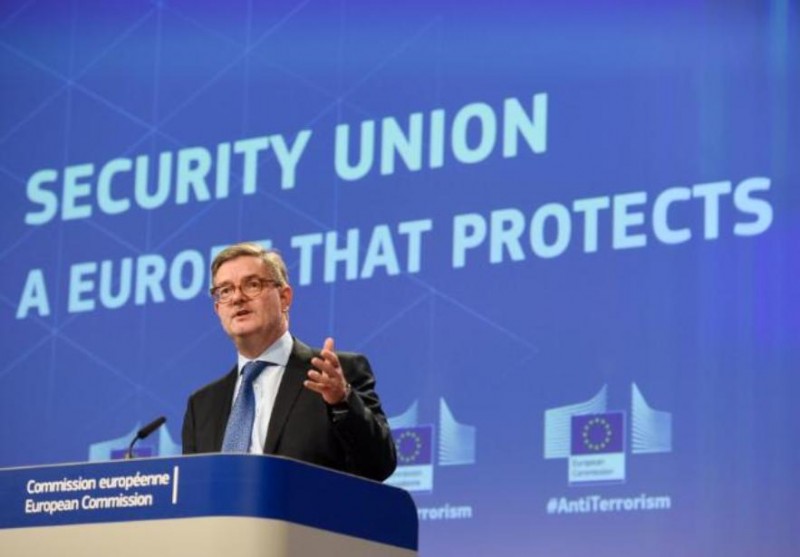- Home/
- News
JHA : Commissioner King calls on EU legislator to make progress in fight against radical online content and access to electronic evidence
The European Union is still facing major challenges in ensuring a better level of security for its citizens, in particular with regard to the fight against online terrorist content or, with regard to the police, access to electronic evidence.
These are the two areas where work will need to be relaunched quickly, said EU Security Commissioner Julian King, when presenting the Commission's 19th report on the Security Union to the European Parliament's Civil Liberties Committee (LIBE) on Wednesday 24 July. The Commissioner also stressed the need to strengthen the EU's response to cyber threats and to develop a common approach to the security risks posed by 5G technology.
The fight against online terrorism is the subject of a proposal for a regulation that will now be examined by the European Parliament, under the leadership of Patryk Jaki (ECR, Poland), after Daniel Dalton of the UK was not re-elected. On this very issue, Mr King expressed his concern that the Islamic State Group could still produce content “at a level similar to that of 2015”. There is still “far too much terrorist content online”, he noted, citing a British study according to which 400 platforms in Europe still continued to host this content.
The European Parliament, which adopted its first reading of the text in May , and the EU Council, which is ready to negotiate with MEPs, were therefore strongly urged to start interinstitutional negotiations.
By way of reminder, the regulation aims to allow a maximum of one hour for a digital platform to remove any radical violent content of a terrorist nature. In the same vein, the Member States and Europol must give substance to the Christchurch Appeal against Online Radicalisation, named after the mosque that was attacked in New Zealand in March by an individual who broadcast his massacre live on the Internet.
Among other challenges being faced, Mr King raised the issue of foreign fighters going to Iraq and Syria. Of the 5,500 individuals concerned, European governments reportedly lost track of 2,000 of them. “We don't know where they are”, said the commissioner; 1,600 fighters reportedly returned and 1,400 others died on the spot.
The Commissioner was also questioned, for example, on the 'PNR' directive aimed at collecting air passenger data in the EU. Sophie in't Veld (Renew Europe, the Netherlands) asked the Commissioner where the Member States stood; dysfunction had been reported in Germany and the European Parliament had been under great pressure from the EU Council to validate this instrument.
To date, 25 Member States (Denmark does not participate) have ensured that they have fully transposed the European rules: according to the Commissioner, Slovenia has done so partially and Spain has not implemented them at all, for reasons of legislative procedures in the national Parliament.
Also questioned by Nathalie Loiseau, (Renew Europe, France) on the hypothesis of a no-deal Brexit, Mr King acknowledged that there would be difficulties for the security sector, although European cooperation frameworks in this area are “better than all other international frameworks”.
Source: Link



 Development of specialized PCVE web site is funded by EU FUNDS CN 2017-386/831 - "IPA II 2016 Regional Action on P/CVE in the Western Balkans"
Development of specialized PCVE web site is funded by EU FUNDS CN 2017-386/831 - "IPA II 2016 Regional Action on P/CVE in the Western Balkans"